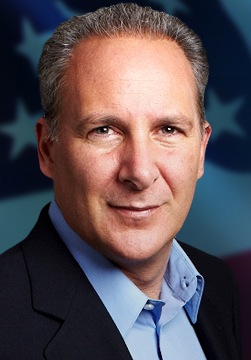2005 CPI Rising at its Fastest Pace in Fifteen Years
With today's release of a 0.1% decline in May consumer prices, many pundits continue to assert that the inflation threat has ended. However, a closer look at the data reveals that the threat has only just begun. Despite May's benign figures, which were driven mainly by falling energy prices, so far 2005 is on pace to achieve the largest CPI increase in fifteen years. Yes, that is not a typo. Not since 1990 has the CPI risen by more than 3.65%, which is the annualized pace set during the first five months of 2005.
In fact, given that oil prices have already increased by over 18% in the last four weeks, and that a reversal in the dollar's recent strength is likely to push commodity prices higher for the remainder of the year, I except CPI gains in the second half of 2005 to push the year's total increase to over 4.6%, its second largest gain in twenty-four years.
Even more shocking, if one adjusts for the facts that in the late 1980s the government took housing prices out of the CPI, and that in the late 1990s it began hedonically adjusting the price components which comprise much of the index, inflation this year would probably be much closer to 10%, were it still calculated using the same methodology as the one used back in 1981.
However, even though this year is shaping up to register the highest inflation rate in 15 years, the strident claims of victory over inflation have never been so prevalent. In fact, today CNBC flashed a graphic showing the benign "core CPI" going back to the 1970's, while neglecting to show a graphic of the far less benign actual CPI over the same time period. During the last fifteen years, when inflation was far less of a problem that it is in the current year, such victory claims were far less numerous, if not completely non-existent.
Why then, during a period of relatively rapid inflation, is the outcry so muted? Why is the government so quick to claim victory over an adversary that is so clearly winning the fight? I believe there are two primary reasons for this apparent paradox. First, in the 1970s and 1980s, when America was a nation of savers, most people easily perceived how inflation robbed them of their purchasing power. Today, American debtors sees inflation as their salvation, as rising home prices and equity extractions increase their purchasing power. Second, as the Fed deliberately peruses a policy of inflation as a means of repudiating government debts, as well as bailing out other borrowers, including hedge funds and homeowners, it can only do so to the extend that it conceals it true intentions from America's creditors. If the world's savers only knew the truth, interest rates would soar, bursting the bubble economy the Fed is trying so desperately to keep inflated.
June 15, 2005
Peter D. Schiff
President/Chief Global Strategist
Euro Pacific Capital, Inc.
20271 Acacia Street, #200
Newport Beach, CA 92660
Toll-free: 888-377-3722
Direct: 203-972-9300
Fax: 949-863-7100

















